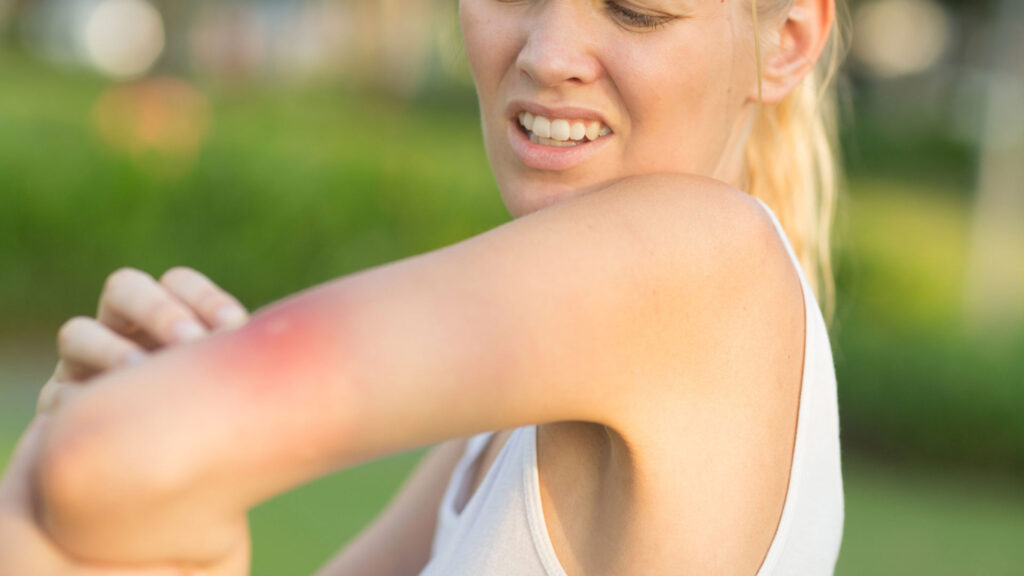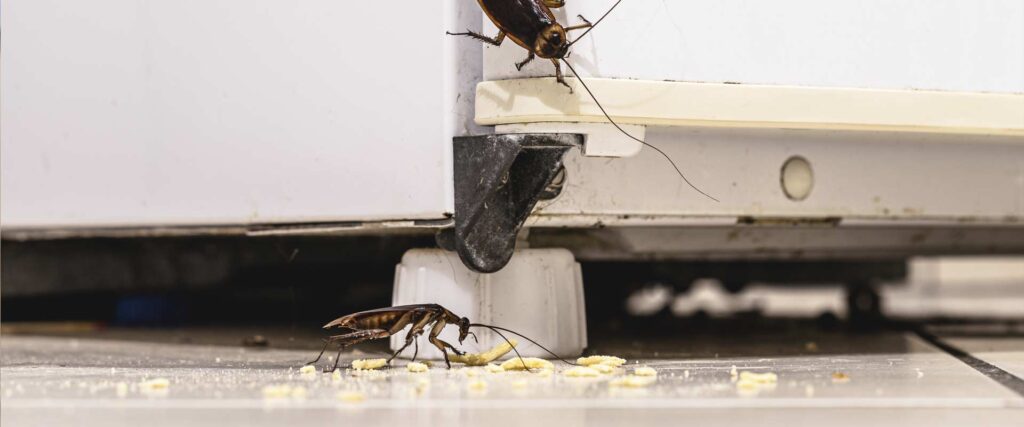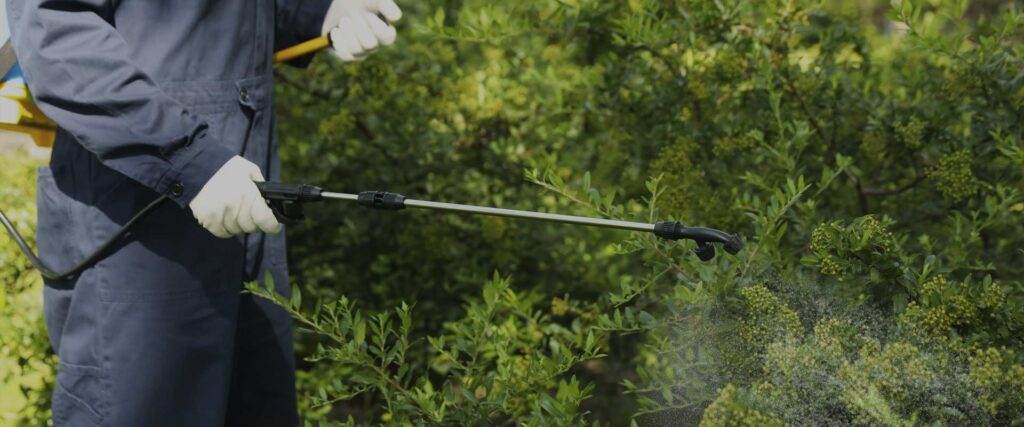Why Do Mosquito Bites Itch?
Mosquito bites itch due to the body’s reaction to the mosquito’s saliva, which contains proteins and anticoagulants. When a mosquito bites, it injects this saliva into the skin, prompting an immune response. The body releases histamine to combat these foreign substances, leading to inflammation and itching. Histamine increases blood flow and white blood cell count around the affected area, causing the characteristic swelling and itchiness associated with mosquito bites. The intensity of itching varies among individuals based on their immune response.

- The Science of the Itch: A Closer Look
- Immune System’s Defense: A Closer Look at the Body’s Reaction to Mosquito Bites
- Histamine: The Culprit Behind the Itch
- Long-Term Sensitization: A Deeper Dive
- Strategies for Mosquito Bite Prevention and Management
- Preventing Mosquito Bites at Home
- Managing Bites
- A Comprehensive Approach to Mosquito Bite Prevention and Management
- Frequently Asked Questions Mosquito Bites
As summer approaches and the days grow warmer, the familiar buzz of mosquitoes begins to fill the air, bringing with it the inevitable annoyance of mosquito bites. These tiny, yet pesky insects are not just a mere nuisance; their bites can cause itchy, uncomfortable skin reactions that can disrupt our daily lives. But what exactly happens when a mosquito bites, and why does it lead to such an irritating itch? This article aims to unravel the mystery behind mosquito bites, blending scientific insights with practical advice to help homeowners safeguard their families and homes against these common yet bothersome pests.
Mosquitoes, often found in areas with stagnant water, are more than just carriers of various diseases; they are a part of our everyday home and environmental landscape. Understanding their behavior and the biological reactions they trigger in humans is crucial for effective prevention and management. The itch from a mosquito bite, a universal experience, is not merely a physical reaction but a complex interplay of biological processes.
In exploring the reasons behind the itchiness caused by mosquito bites, this article delves into the intricacies of our body’s immune response, shedding light on why these bites affect individuals differently. Moreover, it emphasizes the importance of proactive measures in reducing the risk of mosquito bites, particularly in residential settings. From simple home remedies to more advanced preventive strategies, the focus is on equipping homeowners with the knowledge and tools necessary to maintain a safe and comfortable living environment.
As we navigate through the science and solutions surrounding mosquito bites, this article serves as a comprehensive guide for homeowners. It aims to demystify the common misconceptions about mosquito bites and provide actionable advice, ensuring that readers are well-informed and prepared to tackle this perennial issue with confidence and ease.
The Science of the Itch: A Closer Look
The itch from a mosquito bite, often considered a minor annoyance, is actually the result of a complex immunological reaction. Understanding this process not only sheds light on why these bites itch but also underscores the intricate ways our bodies respond to external irritants.
Mosquito bites are more than just a common annoyance; they represent a complex interaction between the insect and human biology. Understanding this interaction is crucial for homeowners seeking to mitigate the discomfort and potential health risks associated with these bites.
Mosquitoes, particularly females, bite humans to feed on their blood, which is necessary for egg production. The process begins when a mosquito pierces the skin with its proboscis, a specialized mouthpart. Contrary to popular belief, the proboscis doesn’t just suck blood like a straw. It’s a sophisticated system comprising multiple stylets, each with a specific function, such as piercing the skin, finding blood vessels, and injecting saliva.
The saliva is where the true intrusion occurs. It contains a cocktail of enzymes and proteins that serve two primary functions: preventing blood clotting and modulating the host’s immune response. The anticoagulants ensure a smooth flow of blood, while other components in the saliva minimize the sensation of the bite, allowing the mosquito to feed undetected.
The human body’s reaction to a mosquito bite is an immune response. When the saliva enters the skin, the body recognizes it as an external threat. The immune system springs into action, releasing histamine to combat this intrusion. Histamine increases blood flow and white blood cell count around the affected area, leading to the classic symptoms of a mosquito bite: redness, swelling, and itching.
The intensity of the reaction varies widely among individuals. Factors like age, immune system strength, and previous exposure to mosquito bites play a role. Those with frequent exposure may develop a tolerance, experiencing less severe reactions over time, while others might remain highly sensitive.
While it’s tempting to scratch a mosquito bite, this can exacerbate the irritation and even lead to secondary infections. To manage the itchiness, over-the-counter antihistamines can be effective. These medications reduce the histamine response, thereby alleviating the symptoms. Topical treatments, such as hydrocortisone cream or calamine lotion, can also provide relief by soothing the affected area.
For those seeking natural remedies, cold compresses can reduce swelling, and aloe vera is known for its soothing properties. Additionally, some find relief in home remedies like applying a paste of baking soda and water, which can neutralize the pH of the skin and reduce itching.
The interaction between mosquitoes and humans is a fascinating yet bothersome aspect of nature. By understanding the mechanics of a mosquito bite and the body’s response, homeowners can better manage and prevent these common yet irritating occurrences. With the right knowledge and tools, the impact of mosquito bites on home safety and comfort can be significantly reduced.
Immune System’s Defense: A Closer Look at the Body’s Reaction to Mosquito Bites
The body’s response to a mosquito bite is a fascinating display of the immune system’s defense mechanisms. When a mosquito pierces the skin, it’s not just taking blood; it’s also depositing saliva that contains a mix of proteins and anticoagulants. This intrusion sets off a complex immune response, which is responsible for the familiar itch and swelling.
The proteins in mosquito saliva are seen as foreign invaders by the body. In response, the immune system kicks into action. The primary goal is to protect the body and repair the affected tissue. The first line of defense involves the release of histamine.
Histamine plays a pivotal role in the body’s response to mosquito bites. It’s released by mast cells, which are part of the immune system. Histamine increases the permeability of blood vessels near the bite. This allows immune cells, such as white blood cells, to access and attack the foreign proteins. However, this increased permeability also causes fluid to accumulate in the tissue, leading to swelling and redness.
The itchiness associated with mosquito bites is essentially a side effect of the histamine release. Histamine binds to nerve receptors in the skin, causing the sensation of itching. This is the body’s way of signaling that something is wrong. Scratching, though it may provide temporary relief, can exacerbate the irritation and even lead to secondary infections if the skin is broken.
Not everyone reacts to mosquito bites in the same way. This variation is largely due to differences in the immune system. Some people might have a higher sensitivity to the proteins in mosquito saliva, leading to more pronounced swelling and itching. Over time, individuals can also develop a tolerance, resulting in less severe reactions to bites.
The immune system’s response to mosquito bites is a complex and well-coordinated defense mechanism. Understanding this process not only sheds light on why bites itch but also underscores the importance of not scratching and using appropriate treatments to manage the symptoms. By respecting and supporting our body’s natural defense system, we can better handle the discomfort of mosquito bites and maintain skin health.
Histamine: The Culprit Behind the Itch
At the heart of the discomfort caused by mosquito bites is histamine, a key player in our body’s immune response. This naturally occurring compound plays a crucial role in the body’s defense mechanisms but is also responsible for the familiar itch and swelling associated with mosquito bites.
When a mosquito pierces the skin, its saliva, which contains foreign proteins and anticoagulants, is introduced into the bloodstream. The body perceives these substances as threats. In response, the immune system springs into action, releasing histamine from cells known as mast cells and basophils, predominantly found in nearby tissues and blood.
Histamine serves several functions in this immune response. Primarily, it increases the permeability of blood vessels near the bite. This allows immune cells, such as white blood cells, to access the affected area more easily. However, this increased permeability also causes fluid to accumulate in the tissue, leading to swelling and redness.
The most noticeable effect of histamine release is the itchiness. Histamine binds to receptors on nerve cells in the skin, specifically the H1 receptors. This binding triggers signals to the brain, which are interpreted as itching. Scratching the bite may temporarily disrupt these signals, providing momentary relief, but it also causes inflammation, which leads to more histamine release and further itching—a cycle that can be challenging to break.
Not everyone reacts to mosquito bites in the same way, and this is partly due to differences in how our bodies release and respond to histamine. Some people might have a higher sensitivity to histamine, experiencing more intense itching and swelling. Others might have a milder reaction, with minimal discomfort.
To manage the itch caused by histamine, over-the-counter antihistamines can be effective. These medications work by blocking histamine receptors, reducing itching and swelling. Topical treatments, like hydrocortisone cream or calamine lotion, can also provide relief by soothing the affected area and reducing inflammation.
Histamine, while a vital part of our immune defense, is the primary cause of the discomfort we experience from mosquito bites. Understanding its role can help in effectively managing and treating the symptoms, ensuring a quicker and more comfortable recovery from these pesky bites.
Individual Variability in Reactions
The reaction to mosquito bites can vary significantly among individuals, a phenomenon rooted in our immune system’s response to the foreign proteins in mosquito saliva. For some, a bite may result in a small, itchy red bump that disappears within a few hours or days. Others might experience more pronounced swelling, redness, and discomfort, lasting for several days. This variability is largely due to genetic factors that influence our immune system’s sensitivity to these foreign proteins.
Children and individuals with certain immune conditions often exhibit more noticeable reactions. In children, the immune system may react more robustly as it encounters these proteins for the first time, leading to more pronounced swelling and itching. Over time, with repeated exposure, many people develop a tolerance, resulting in less severe reactions. However, for those with immune system disorders or allergies, mosquito bites can trigger more intense and prolonged responses, sometimes requiring medical attention.
Understanding this variability is crucial in managing expectations and responses to mosquito bites. While most reactions are harmless and self-limiting, knowing when a reaction is atypical and warrants medical advice is important, especially for individuals with known sensitivities or immune conditions.
Long-Term Sensitization: A Deeper Dive
Long-term sensitization refers to the body’s heightened response to mosquito bites over time. Contrary to what one might expect, repeated exposure to mosquito bites doesn’t always lead to desensitization. Instead, for many individuals, the immune system becomes increasingly reactive, causing more severe itching and swelling with each subsequent bite. This phenomenon is a result of the immune system’s memory, which recognizes the proteins in mosquito saliva as a threat and mounts a stronger response each time.
This sensitization process is particularly significant for homeowners in mosquito-prevalent areas. Over time, residents may find that bites become more bothersome, not less. This increased reaction can also be accompanied by larger areas of redness and swelling, and in some cases, can lead to more serious skin reactions, such as blistering or hives. It’s important to note that while these reactions can be uncomfortable and alarming, they are generally not indicative of a more serious health concern.
Understanding long-term sensitization underscores the importance of proactive mosquito control and bite prevention in the home. By reducing exposure to bites, homeowners can help mitigate the risk of developing more severe reactions over time. This makes the implementation of preventive measures, such as maintaining a clean and dry environment, using insect repellents, and installing physical barriers like screens and nets, not just a matter of immediate comfort, but also a long-term health consideration.
The itch from a mosquito bite is a testament to the body’s defense mechanisms at work. While often a mere annoyance, it represents a complex interplay between an external irritant and the body’s immune response. Understanding this process not only helps in appreciating the body’s natural defenses but also underscores the importance of effective bite prevention and management strategies.
Strategies for Mosquito Bite Prevention and Management
| Strategy | Description | Benefits | Considerations |
|---|---|---|---|
| Eliminate Standing Water | Regularly remove water from containers like flowerpots and buckets. | Reduces mosquito breeding grounds. | Requires consistent monitoring, especially after rain. |
| Install Screens and Nets | Use mosquito screens on windows and nets around beds. | Prevents mosquitoes from entering living spaces. | Initial installation cost; maintenance of screens. |
| Natural Repellents | Plant mosquito-repelling flora like citronella, lavender, and marigolds. | Aesthetic and natural way to deter mosquitoes. | Effectiveness varies; requires gardening effort. |
| LED Lighting | Replace outdoor lights with LED bulbs. | Less attractive to mosquitoes than traditional bulbs. | Upfront cost of LED bulbs; may not deter all mosquito species. |
| Topical Treatments | Apply insect repellent creams or sprays. | Offers personal protection when outdoors. | Requires regular application; skin sensitivity in some individuals. |
| Antihistamines and Creams | Use over-the-counter remedies for bites. | Alleviates itching and swelling. | Not a preventive measure; consult a doctor for severe reactions. |
Preventing Mosquito Bites at Home
Prevention is key in managing mosquito bites. Homeowners can adopt several strategies to reduce the presence of mosquitoes in their living spaces:
- Eliminate Standing Water: Mosquitoes breed in stagnant water. Regularly check and empty items that collect rainwater, such as flowerpots, buckets, and birdbaths.
- Use Screens and Nets: Install screens on windows and doors to prevent mosquitoes from entering the home. Mosquito nets around beds can be particularly effective in endemic areas.
- Natural Repellents: Certain plants, like citronella, lavender, and marigolds, are known to repel mosquitoes. Incorporating these into your garden can help keep these pests at bay.
- Proper Lighting: Mosquitoes are less attracted to LED lights. Replacing outdoor lighting with LED bulbs can reduce their presence around your home.
Managing Bites
homeowners can adopt a multi-faceted approach that combines environmental management with personal protection strategies.
Environmental management is crucial in reducing mosquito populations. Beyond eliminating standing water, proper landscaping can play a significant role. Mosquitoes thrive in dense vegetation, so keeping the lawn mowed and bushes trimmed reduces their breeding grounds. Additionally, using outdoor fans on patios or decks can deter mosquitoes, as they are weak fliers and struggle against the air flow. For those living in areas with a high mosquito population, considering professional pest control services for periodic yard treatments can be effective.
Personal protection should not be overlooked. Wearing long-sleeved shirts and pants, especially during dawn and dusk when mosquitoes are most active, provides a physical barrier against bites. The use of EPA-registered insect repellents containing DEET, picaridin, or oil of lemon eucalyptus is highly recommended when spending time outdoors. It’s important to follow the product instructions for safe and effective use. Additionally, ensuring that window and door seals are intact can prevent mosquitoes from entering the home, providing an additional layer of protection against these pests.
Natural Remedies for Mosquito Bite Relief
- Aloe Vera: Known for its soothing properties, aloe vera can reduce skin inflammation and itching.
- Honey: A natural antibiotic, honey can be applied to a bite to reduce inflammation and prevent infection.
- Baking Soda Paste: Mix baking soda with water to create a paste, and apply it to the bite to alleviate itching.
- Cold Compress: Applying a cold pack or a damp, chilled cloth to the bite can help reduce swelling and numb the itch.
- Essential Oils: Oils like tea tree, lavender, and chamomile have anti-inflammatory
properties and can soothe mosquito bites when diluted and applied to the skin.
A Comprehensive Approach to Mosquito Bite Prevention and Management
The battle against mosquito bites is multifaceted, involving both an understanding of the biological processes at play and the implementation of practical, preventive measures in our homes and surroundings. By delving into the science behind why mosquito bites itch, we gain a clearer perspective on how our bodies react to these common pests. This knowledge not only helps in managing the discomfort but also underscores the importance of proactive measures to minimize exposure to mosquito bites.
Effective mosquito control is crucial for maintaining a healthy living environment. It goes beyond mere inconvenience; in some regions, mosquitoes are carriers of serious diseases, making their management a critical aspect of home safety. Homeowners are encouraged to adopt a holistic approach – one that combines environmental vigilance with personal protection strategies.
Environmental vigilance involves regular inspection and elimination of standing water sources, a breeding ground for mosquitoes. This simple yet effective step can significantly reduce the mosquito population in your immediate surroundings. Additionally, the use of physical barriers such as screens and mosquito nets provides a layer of protection, especially in areas where mosquitoes are prevalent.
Incorporating natural repellents into your garden or balcony can serve as a dual-purpose solution, enhancing the aesthetic appeal of your space while keeping mosquitoes at bay. The choice of outdoor lighting also plays a role; opting for LED lights can reduce the attractiveness of your home to these pests.
On a personal level, the use of appropriate repellents, wearing protective clothing, and being mindful of peak mosquito activity times can further reduce the risk of bites. In instances where bites occur, understanding the importance of not scratching and knowing when to seek medical attention for severe reactions are key components of effective bite management.
Ultimately, the goal is to create a safe, comfortable, and healthy living environment. This requires ongoing effort and awareness, as mosquito populations and behaviors can change with seasons and environmental conditions. By staying informed and proactive, homeowners can effectively manage the challenge of mosquito bites, ensuring peace of mind and well-being for themselves and their families
Frequently Asked Questions Mosquito Bites
Why do mosquito bites itch?
Mosquito bites itch due to the body’s immune response to the mosquito’s saliva, which contains proteins and anticoagulants. When these substances enter the skin, the body releases histamine to combat them, causing itching and swelling.
Does everyone experience the same level of itchiness from mosquito bites?
No, the intensity of itchiness varies from person to person. This variation is due to differences in individual immune responses. Some people may have a mild reaction, while others might experience more severe itching and swelling.
How long does the itchiness from a mosquito bite last?
Typically, the itchiness from a mosquito bite lasts a few days to a week. However, this can vary based on the individual’s reaction and whether the bite is scratched or becomes infected.
Are there any effective home remedies to relieve the itch from mosquito bites?
Yes, several home remedies can help alleviate the itch, such as applying a cold compress, aloe vera, honey, or a baking soda paste. Over-the-counter antihistamine creams can also be effective.
Can scratching a mosquito bite lead to complications?
Yes, scratching a mosquito bite can break the skin, increasing the risk of infection. It’s best to avoid scratching and use remedies to soothe the itch instead.
Are some people more prone to getting bitten by mosquitoes?
Yes, factors like blood type, body heat, and the carbon dioxide one exhales can make certain individuals more attractive to mosquitoes.
How can I prevent mosquito bites at home?
Preventive measures include eliminating standing water where mosquitoes breed, using window and door screens, applying insect repellent, and wearing protective clothing during peak mosquito activity times.
Are mosquito bites dangerous?
Most mosquito bites are harmless, but mosquitoes can transmit diseases like malaria, dengue, and Zika virus in certain regions. It’s important to take preventive measures, especially in areas where these diseases are prevalent.
Do children react differently to mosquito bites than adults?
Children may have more pronounced reactions to mosquito bites, as their immune systems are still developing. It’s important to monitor their bites for excessive swelling or signs of allergic reactions.
When should I see a doctor for a mosquito bite?
Consult a healthcare professional if the bite site becomes excessively swollen, painful, shows signs of infection (like pus or increasing redness), or if you experience symptoms like fever or body aches.




